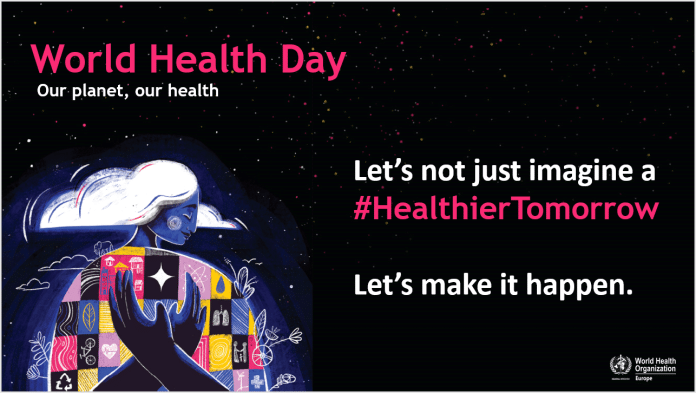Human impact on the environment is increasing the risk of emerging infectious diseases in humans, over 60% of which originate from animals, mainly from wildlife. April 7, 2022, we celebrate World Health Day. This year, we turn our attention towards our planet, our health.
Diseases such as COVID-19 are thought to be the result of deforestation, trade and consumption of wildlife. In order to stop the spreading of COVID-19 and other diseases, plans need to go further upstream than control of outbreaks. Moreover, they need to lessen our impact on the environment to reduce the risk at its source.
Below are two examples of environmental disasters caused by human activities.
Air pollution
Air pollution is one of the biggest environmental threats to human health.

WHO estimates that around 7 million premature deaths every year are due to the effects of air pollution, with more than 500 000 of those deaths occurring in the WHO European Region.
Some air pollutants are linked with both health effects and near-term warming of the planet. They persist in the atmosphere for as little as a few days or months and their reduction has co-benefits not just for health but also for the climate.
Climate change is a health crisis driving deadly heatwaves, floods, malnutrition and infectious diseases. Almost all efforts to improve air quality can enhance climate change mitigation, and climate change mitigation efforts can, in turn, improve air quality.
Waste
Industrial use, waste disposal, the increased use of chemicals and hazardous substances, and poor environmental management during past decades have left a legacy of contaminated sites across the WHO European Region. In the European Union alone, it is estimated that there are 2.8 million sites with potential contamination.

Safe water, sanitation and hygiene (collectively known as WASH) are crucial for human health and well-being. Yet, millions of people globally lack adequate WASH services and consequently suffer from or are exposed to a multitude of preventable illnesses. Lack of safe WASH negatively impacts quality of life and undermines fundamental human rights. Poor WASH services also weaken health systems, threaten health security and place a heavy strain on economies.
For a healthier tomorrow
To create healthy cities and communities, we need to develop more green spaces that support active recreation and offer the chance to relax. During this global COVID-19 pandemic, however, there has been an important, albeit short-term, reduction of air pollution across cities. This reduction was more prominent in the case of nitrogen oxides (NOₓ), a pollutant very much related to traffic, which was dramatically curtailed by lockdown measures.
The response measures to COVID-19 have shown us how policies related to transport, and the way people work, study and consume, can contribute to a better air quality, something that should be taken into consideration for the post-pandemic recovery policies that many countries are already working on.

For more than 30 years the WHO European Healthy Cities Network has been a pioneering driver of change, creating heathier urban settings that support the health and well-being of the people and communities that use them. Within a complex world of multiple tiers of government, numerous sectors working towards similar goals, and many stakeholders involved in the pursuit of health and well-being, cities are uniquely placed to provide leadership, showing that global problems are being dealt with at a local level.
Let’s not just imagine a healthier tomorrow. Let’s make it happen.
Read more here:




